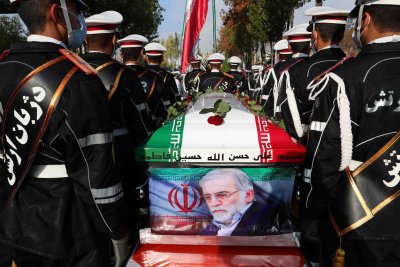
Sept. 28 (UPI) — A decade after they were lifted, economic and military sanctions were reimposed on Iran Sunday over its nuclear program.
Britain, France and Germany have accused Iran of “continued nuclear escalation,” and reactivated what is known as a “snapback mechanism” over Iran’s lack of cooperation to de-escalate the country’s nuclear program.
Iran suspended inspections of its nuclear facilities under terms of a 2015 deal after Israel and the United States bombed several of the country’s nuclear sites in June.
Iranian President Masound Pezeshkian has continued to maintain that his country has no intentions of developing nuclear weapons, and made the claim again last week.
Pezeshkian has called the reimposition of sanctions “unfair, unjust and illegal,” and a setback to Iran’s fledgling relations with the West.
The Joint Comprehensive Plan of Action limits Iran’s nuclear facilities, stockpiles of enriched uranium and the amount of research it is allowed to undertake. It allows Iran to develop nuclear infrastructure, but not weapons.
Iran escalated its nuclear program after President Donald Trump pulled out of the JCPOA during his first term in 2018.
European negotiators told the U.N. Security Council in August that Iran had violated “the near entirety of its JCPOA commitments,” and gave the country a month’s warning to scale back its nuclear program before Russia assumed control of the Security Council in October.
Several meetings with Iranian foreign minister Abbas Araghchi have produced no progress in meeting key European demands, including evidence that Iran is working on a diplomatic solution, complying with inspections by the International Atomic Energy Agency and disclosing the whereabouts of more than 400 kg of highly enriched uranium.
The European nations have also called for resumed talks between Iran and the United States.